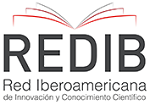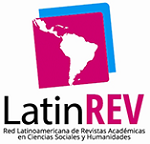Design of a system based on new information and communication technologies for measuring the quality and productivity of university teaching.
Keywords:
New Technologies of Information and Communication, Quality and Productivity of University TeachingAbstract
The purpose of the research was to design and implement a system based on the New Technologies of Information and
Communication (NTIC), for measuring the quality and productivity in university teaching, using indicators. This was to determine if
teachers and students wanted a system of this type, knew about indicators, knew about quality and productivity in teaching, whether the
intervention was effective, if the teachers used the network, and how the designed system was working. The investigation concluded
in structuring constructs of teaching, quality and productivity in teaching, and in the construction of indicator set. The diagnosis was
verified with a survey, first the lack of the mentioned constructs and management indicators; Second, that, there is no national system
based on measuring NTIC for quality and productivity in teaching; aspiration of students and teachers about having a system of this type
for continuous improvement and; intervention processes are ineffective in contributing to the improvement of quality and productivity in
teaching. The design, automation and implementation of the system allowed the use of structured techniques updated to work in Web
environments analysis. The research questions were answered with contrasts of formulated hypothesis diagnosis with information from the
surveys and the system implementation.
References
Yarzábal, L., Vila, A. & Ruiz, R. (1999). Evaluar para transformar. Caracas, Venezuela: IESALC/UNESCO.
Kaufman, R., Watkins, R. & Leigh, D. (2001). Useful educational results [Resultados educativos útiles: definición, priorización y logros]. Lancaster, PA, EE.UU.: Pro Active.
Silvio, J. (2000). La virtualización de la universidad.
Caracas, Venezuela: IESALC/UNESCO.
Comisión Central de Currículum. (1998). Lineamientos y parámetros curriculares para la creación y transformación de proyectos académicos en la UNET. San Cristóbal, Venezuela: Vicerrectorado Académico.
Oilo, D. De lo tradicional a lo virtual: las nuevas tecnologías de la información. La educación superior en el siglo XXI, visión y acción. Conferencia mundial sobre la educación superior UNESCO, París. 5-9 de octubre de 1998.
Sánchez, J. (2001). Apuntes de estadística. Manuscrito no publicado. Universidad Nacional Experimental del Táchira. San Cristóbal, Venezuela.
Seijas, F. (1999). Investigación por muestreo (3a. ed.).
Caracas, Venezuela: FACES- UCV.
Campbell, D. & Stanley, J. (1995). Diseños experimentales y cuasiexperimentales en la investigación social (M. Kitaigoradzki &
J. C. Orries e I. Bars, Trads.). Buenos Aires, Argentina: Amorrortu. (Trabajo original publicado en 1966).
Leedy, P. & Ormrod, J. (2001). Practical research planning and design [Planificación y diseño de la investigación práctica].
Upper Saddle River, NJ, EE.UU.: Prentice Hall.
Salkind, N. (1999). Métodos de investigación (3a. ed.). (R. Escalona, Trad.). México, México: Prentice Hall Hispanoamericana. (Trabajo original publicado en 1998).
Albornoz, O. (1997). La cuestión de la productividad, rendimiento y competitividad académica del personal docente y de investigación en América Latina y el Caribe. En L. Yarsabal (Ed.), Educación Superior en el siglo XXI: Visión de América Latina y el Caribe (pp. 391-421). La Habana, Cuba: CRESAL/UNESCO.
González, R., Ledesma, M., Muro, X. & Pardo, M. (2002). Criterio e indicadores de la calidad en la educación superior venezolana, caso del Instituto Pedagógico de Caracas. Caracas, Venezuela: Fondo editorial de la Universidad Pedagógica Experimental Libertador.
Alarcón, N. & Méndez, R. (2000). Calidad y productividad en la docencia de la educación superior. Recuperado el 2 de septiembre de 2003, de http://www
.monografias.com/trabajos10/ponenc/ponenc.shtml
Instituto Tecnológico de Sonora. (1998). Programa para la optimización y productividad académica. Recuperado el 20 de diciembre de 2004, de: http://biblioteca.itson.mx/ sib/
Acevedo, D. (2004). Metodología para la generación e interpretación de indicadores de gestión y resultados. Caracas, Venezuela: Ministerio de Educación Cultura y Deportes.
Beltrán, J. (1998). Indicadores de gestión. Santafé de Bogotá, Colombia: 3R editores.
Downloads
Published
How to Cite
Issue
Section
Downloads
License
The journal offers open access under a Creative Commons Attibution License

This work is under license Creative Commons Attribution (CC BY 4.0).








